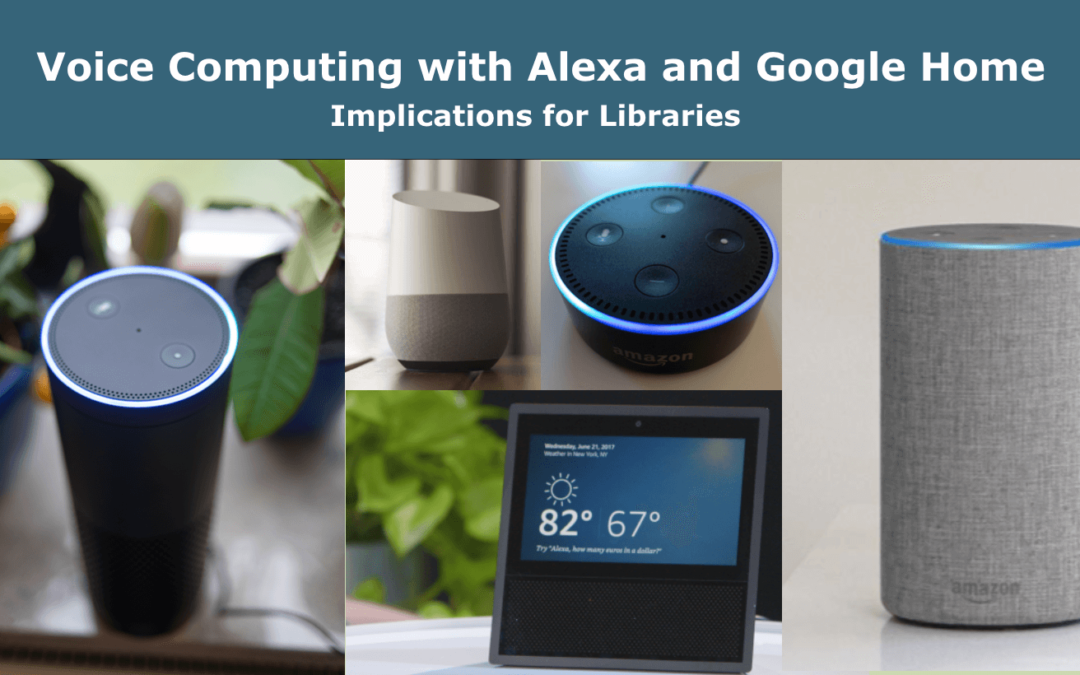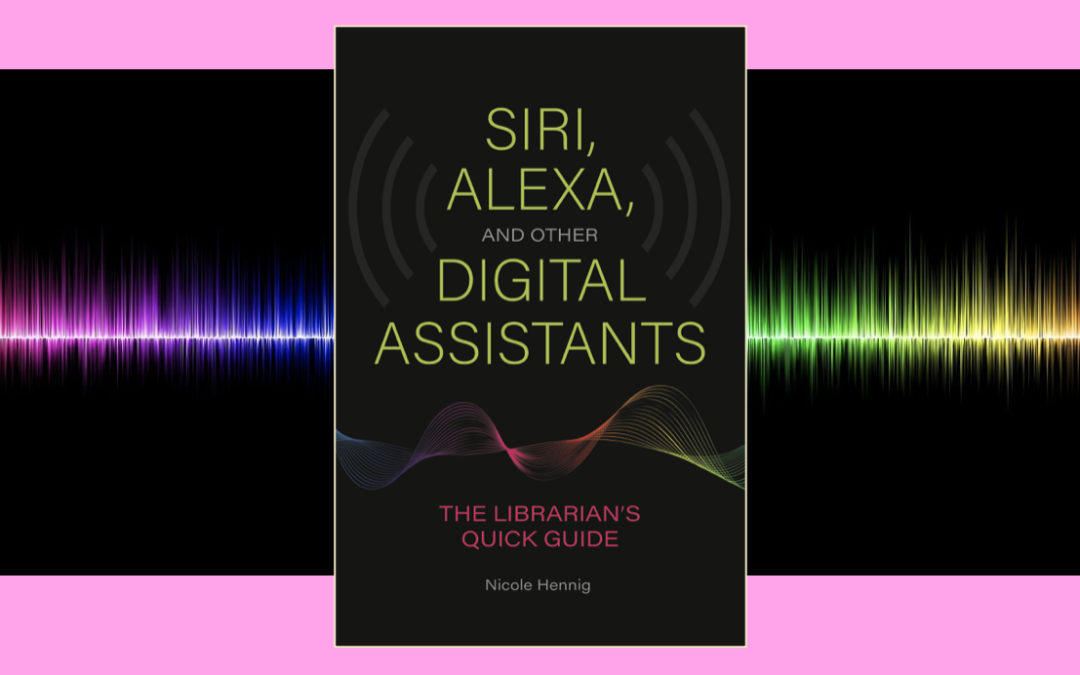
Voice Computing with Alexa and Google Home – Implications for Libraries: A Webinar
90-minute webinar with questions for discussion
1 pre-webinar reading
Contact me to schedule it for your group.
The Amazon Echo, with its “Alexa” voice personality, is one of the most popular smart speakers available. Google has “Google Assistant,” Apple “Siri,” and Microsoft “Cortana.” These voice-controlled systems can do many things, such as play music, audiobooks, radio stations, podcasts, answer factual questions, tell stories, and control devices in your home. This technology is improving quickly and is now available in more locations, like the workplace and your car.
These voice-controlled products enable better access for people with vision problems, mobility problems, and situations where hands-free computing is useful.
Public, school, and academic libraries are experimenting with voice computing technologies by offering smart speakers for borrowing, creating “Alexa skills” about library programs, hosting workshops about smart speakers, and more.
We’ll cover
1. What is voice computing?
2. How does it work?
3. Examples of use
4. Why it matters
5. Where is it in the Hype Cycle?
6. Is it likely to be a passing fad or an important trend?
7. Who are some of the key players? (organizations, companies)
8. What are some ethical concerns?
9. How might it help individuals?
10. How might it help people with disabilities?
11. Can it help bridge the digital divide?
12. How are libraries currently using voice computing and how might they use it in the future?
13. How might we experiment with it in library settings?
14. Which time frame applies?
– It’s a bit far off in the future, but good to understand.
– It’s coming soon, important to learn more now.
– It’s already here, and worth experimenting with in libraries.
15. Resources for learning more
Outcomes
- Become familiar with the basics of voice computing platforms.
- Understand why voice computing is positioned to become an important paradigm change for more user-friendly and accessible computing.
- Get inspired to experiment with voice computing in library services and events.
- Continue your learning with a bibliography of best sources for learning more.
See also my book, Siri, Alexa, and Other Digital Assistants: The Librarian’s Quick Guide, published by Libraries Unlimited.
This webinar is part of a series about specific emerging technologies and their implications for libraries by Nicole Hennig, author of Keeping Up with Emerging Technologies: Best Practices for Information Professionals.
Voice Computing -- Implications for Libraries
This will be interesting and fun!

